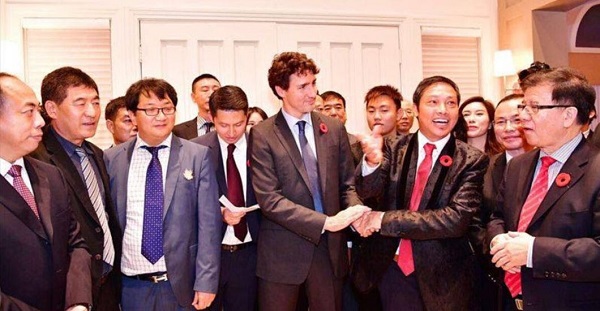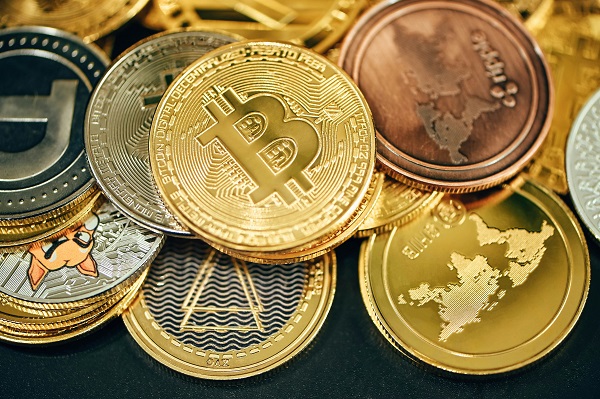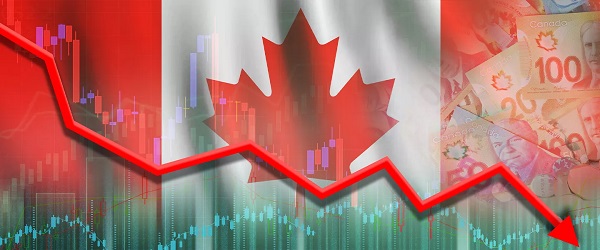Business
USPS suspends inbound packages from China, Hong Kong
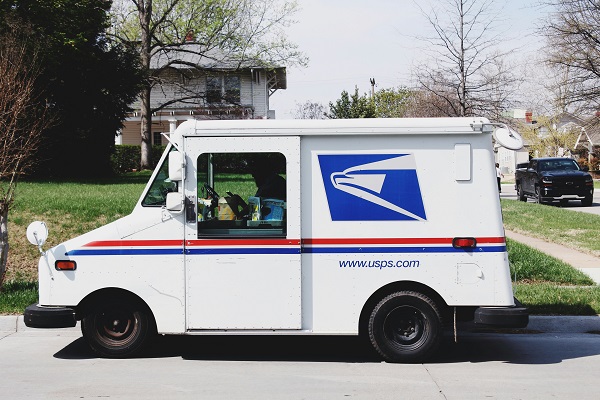
Quick Hit:
The U.S. Postal Service has suspended the acceptance of inbound packages from China and Hong Kong, citing security and policy concerns. The move comes as President Donald Trump enforces new tariffs to curb the flow of synthetic opioids into the United States.
Key Details:
- The suspension affects international parcels but does not impact letters or flat mail from China and Hong Kong.
- Trump signed an executive order on Feb. 1st, imposing a 10% tariff on imports linked to China’s synthetic opioid supply chain.
- In response, China has announced retaliatory tariffs and launched an anti-monopoly investigation into U.S. tech firms.
Diving Deeper:
The United States Postal Service (USPS) has announced the immediate suspension of inbound package acceptance from China and Hong Kong, a move aligned with President Donald Trump’s recent efforts to crack down on illicit drug trafficking. While the suspension blocks parcels from entering the country, it does not impact letters or flat mail, according to the USPS statement.
The decision comes as Trump signed an executive order on Feb. 1st, imposing a 10% tariff targeting Chinese chemical companies accused of fueling the fentanyl crisis in America. The order alleges that the Chinese Communist Party (CCP) has subsidized firms exporting fentanyl precursors, which are frequently used to manufacture synthetic opioids that have contributed to tens of thousands of American deaths.
“These companies exploit international trade loopholes, using fraudulent invoices, deceptive packaging, and re-shippers to evade detection,” Trump stated. The administration argues that these tactics enable the smuggling of lethal drugs into the U.S. under the guise of legitimate commerce.
China has responded swiftly to the escalating trade measures, announcing countertariffs on key U.S. exports, including coal, liquefied natural gas, crude oil, and agricultural equipment. Additionally, the Chinese government has initiated an anti-monopoly probe into Alphabet Inc.’s Google while adding U.S. companies PVH Corp. and Illumina to its “unreliable entities list.” Beijing has also imposed export restrictions on rare earth metals essential to high-tech industries.
The USPS suspension, combined with the new tariffs, signals a renewed push by Trump to hold China accountable for its role in the opioid crisis while reinforcing his America First trade agenda. With tensions mounting between the two global powers, further economic retaliation from Beijing remains a possibility.
Business
Report: $128 million in federal grants spent on gender ideology

From The Center Square
By
More than $128 million of federal taxpayer money was spent on at least 341 grants to fund gender ideology initiatives under the Biden administration, according to an analysis of federal data by the American Principles Project.
In, “Funding Insanity: Federal Spending on Gender Ideology under Biden-Harris,” APP says it “found how the federal government has been spending hundreds of millions of YOUR MONEY on the Gender Industrial Complex!”
APP says it identified the grants by searching the USA Spending database. The data, which is available for free, is categorized by federal agency; notable grants are highlighted.
The U.S. Health and Human Services Department awarded the greatest amount of funding totaling nearly $84 million through 60 grants.
The Department of State awarded the greatest number of grants, 209, totaling more than $14 million, according to the data.
Other agencies awarding taxpayer-funded gender ideology grants include:
- U.S. Agency for International Development, nearly $18 million through 8 grants;
- National Endowment for the Humanities, more than $2.6 million through 20 grants;
- Department of Justice, $1.9 million through three grants;
- Institute of Museum and Library Services, $1.87 million through 13 grants;
- Department of Education, $1.67 million through two grants;
- Department of Agriculture, $1.6 million through five grants;
- Department of the Interior, more than 1,000,000 awarded through two grants;
- U.S. Department of Housing and Urban Development, more than $548,000 through 4 grants;
- Inter-American Foundation, more than $490,000 through two grants;
- National Endowment for the Arts, $262,000 through 13 grants.
APP also identified 63 federal agency contracts totaling more than $46 million that promote gender ideology. They include total obligated amounts and the number of contracts per agency.
The majority, $31 million, was awarded through USAID. The next greatest amount of $4.4 million was awarded through the Department of Defense.
The Trump administration has taken several approaches to gut USAID, which has been met with litigation. The Department of Defense and other agencies are also under pressure to cut funding and reduce redundancies.
Notable grants include:
- $3.9 million to Key Populations Consortium Uganda for promoting “the safety, agency, well-being and the livelihoods of LGBTQI+ in Uganda;”
- $3.5 million to Outright International for “the Alliance for Global Equality and its mission to promote LGBTQI+ people in priority countries around the world;”
- $2.4 million to the International Rescue Committee for “inclusive consideration of sexual orientation, gender identity, and sexual characteristics in humanitarian assistance;”
- $1.9 million to the American Bar Association to “shield the LGBTQI+ population in the Western Balkans;”
- $1.4 million for “economic empowerment of and opportunity for LGBTQI+ people in Serbia;”
- $1.49 million to Equality for All Foundation, Jamaica to “Strengthen community support structures to upscale LGBT rights advocacy;”
- More than $1 million to Bandhu Social Welfare Society to support gender diverse people in Bangladesh.
One of the grants identified by APP, which has since been cancelled, was $600,000 from the U.S. Department of Agriculture to Southern University Agricultural & Mechanical College in Baton Rouge, Louisiana, to study menstruation and menopause, including in biological men.
According to a description of the grant summary, funding would support research, extension, and teaching to address “growing concerns and issues surrounding menstruation, including the potential health risks posed to users of synthetic feminine hygiene products (FHP);” advancing research in the development of FHP that use natural materials and providing menstrual hygiene management; producing sustainable feminine hygiene sanitary products using natural fibers; providing a local fiber processing center for fiber growers in Louisiana, among others.
It states that menstruation begins in girls at roughly age 12 and ends with menopause at roughly age 51. “A woman will have a monthly menstrual cycle for about 40 years of her life averaging to about 450 periods over the course of her lifetime,” but adds: “It is also important to recognize that transgender men and people with masculine gender identities, intersex and non-binary persons may also menstruate.”
All federal funding was allocated to state agencies through the approval of Congress when it voted to pass continuing resolutions to fund the federal government and approved agency budgets.
Business
We’re paying the bills, why shouldn’t we have a say?
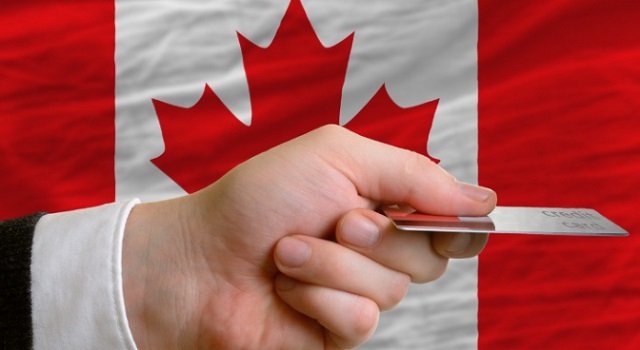

 By David Clinton
By David Clinton
Shaping Government Spending Choices to Reflect Taxpayer Preferences
Technically, the word “democracy” means “rule of the people”. But we all know that the ability to throw the bums out every few years is a poor substitute for “rule”. And as I’ve already demonstrated, the last set of bums you sent to Ottawa are 19 times more likely than not to simply vote along party lines. So who they are as individuals barely even matters.
This story isn’t new, and it hasn’t even got a decent villain. But it is about a universal weakness inherent in all modern, nation-scale democracies. After all, complex societies governed by hundreds of thousands of public servants who are responsible for spending trillions of dollars can’t realistically account for millions of individual voices. How could you even meaningfully process so many opinions?
Hang on. It’s 2025. These days, meaningfully processing lots of data is what we do. And the challenge of reliably collecting and administrating those opinions is trivial. I’m not suggesting we descend into some hellish form of governance by opinion poll. But I do wonder why we haven’t tried something that’s far more focused, measured, and verifiable: directed revenue spending.
Self-directed income tax payments? Crazy, no? Except that we’ve been doing it in Ontario for at least 60 years. We (sometimes) get to choose which of five school boards – English public, French public, English separate (Catholic), French separate (Catholic), or Protestant separate (Penetanguishene only) – will receive the education portion of our property tax.
Here’s how it could work. A set amount – perhaps 20 percent of the total federal tax you owe – would be considered discretionary. The T1 tax form could include the names of, say, ten spending programs next to numeric boxes. You would enter the percentage of the total discretionary portion of your income tax that you’d like directed to each program with the total of all ten boxes adding up to 100.
The specific programs made available might change from one year to the next. Some might appear only once every few years. That way, the departments responsible for executing the programs wouldn’t have to deal with unpredictable funding. But what’s more important, governments would have ongoing insights into what their constituents actually wanted them to be doing. If they disagreed, a government could up their game and do a better job explaining their preferences. Or it could just give up and follow the will of their taxpayers.
Since there would only be a limited number of pre-set options available, you wouldn’t have to worry about crackpot suggestions (“Nuke Amurika!”) or even reasoned and well-meaning protest campaigns (“Nuke Ottawa!”) taking over. And since everyone who files a tax form has to participate, you won’t have to worry about a small number of squeaky wheels dominating the public discourse.
Why would any governing party go along with such a plan? Well, they almost certainly won’t if that’s any comfort. Nevertheless, in theory at least, they could gain significant political legitimacy were their program preferences to receive overwhelming public support. And if politicians and civil servants truly believed they toil in the service of the people of Canada, they should be curious about what the people of Canada actually want.
What could go wrong?
Well the complexity involved with adding a new layer of constraints to spending planning can’t be lightly dismissed. And there’s always the risk that activists could learn to game the system by shaping mass movements through manipulative online messaging. The fact that wealthy taxpayers will have a disproportionate impact on spending also shouldn’t be ignored. Although, having said that, I’m not convinced that the voices of high-end taxpayers are less valuable than those of the paid lobbyists and PMO influencers who currently get all the attention.
Those are serious considerations. I’m decidedly less concerned about some other possible objections:
- The risk that taxpayers might demonstrate a preference for short term fixes or glamour projects over important long term wonkish needs (like debt servicing) rings hollow. Couldn’t those words just as easily describe the way many government departments already behave?
- Couldn’t taxpayer choices be influenced by dangerous misinformation campaigns? Allowing for the fact the words “misinformation campaign” make me nervous, that’s certainly possible. But I’m aware of no research demonstrating that, as a class, politicians and civil servants are somehow less susceptible to such influences.
- Won’t such a program allow governments to deflect responsibility for their actions? Hah! I spit in your face in rueful disdain! When was the last time any government official actually took responsibility (or even lost a job) over stupid decisions?
- Won’t restricting access to a large segment of funds make it harder to respond to time-sensitive emergencies? There are already plenty of political and policy-based constraints on emergency spending choices. There’s no reason this program couldn’t be structured intelligently enough to prevent appropriate responses to a genuine emergency.
This idea has no more chance of being applied as some of the crazy zero-tax ideas from my previous post. But things certainly aren’t perfect right now, and throwing some fresh ideas into the mix can’t hurt.
-
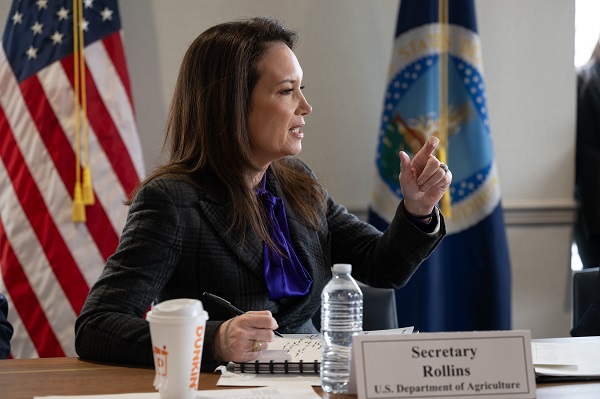
 Business20 hours ago
Business20 hours ago“The insanity is ending”: USDA cancels $600k grant to study transgender men’s menstruation
-

 Business1 day ago
Business1 day agoApple suing British government to stop them from accessing use data
-

 Business2 days ago
Business2 days agoTaxpayers Federation demands government cancel automatic beer tax hike
-
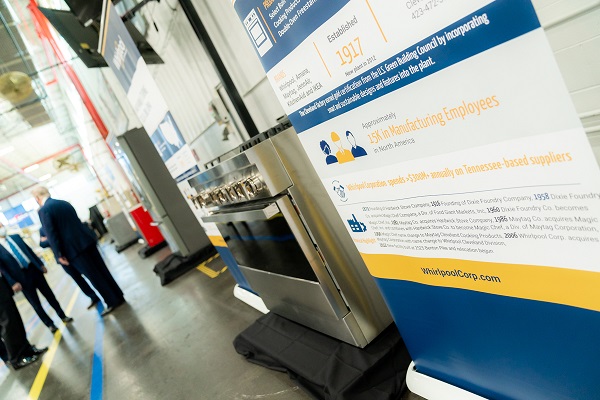
 Business2 days ago
Business2 days agoTrump’s first jobs report: Manufacturing roars back, reversing Biden-era losses
-
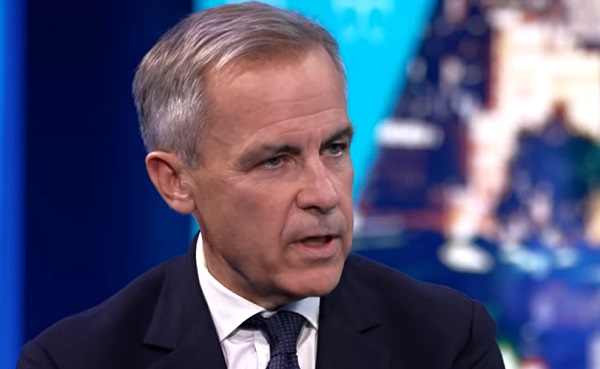
 Great Reset2 days ago
Great Reset2 days agoConservative MP calls potential Trudeau successor Mark Carney a ‘globalist’
-
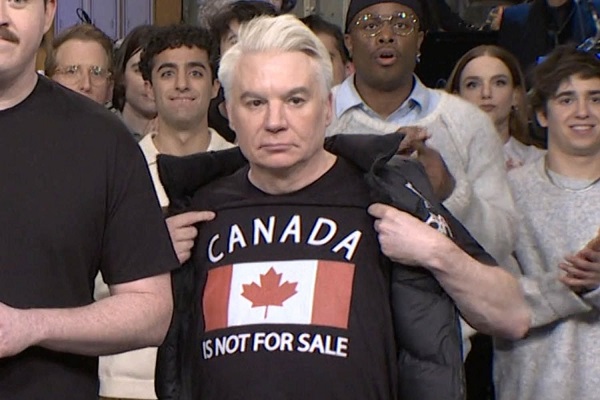
 Bruce Dowbiggin1 day ago
Bruce Dowbiggin1 day agoThe Phony War: Canada’s Elites Fighting For A Sunset Nation
-

 Daily Caller19 hours ago
Daily Caller19 hours agoBiden’s Dumb LNG Pause Has Rightfully Met Its End
-

 Censorship Industrial Complex9 hours ago
Censorship Industrial Complex9 hours agoHow America is interfering in Brazil and why that matters everywhere. An information drop about USAID


